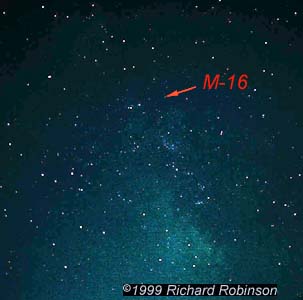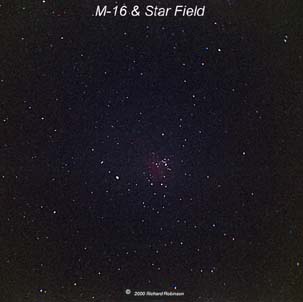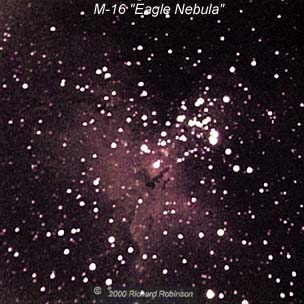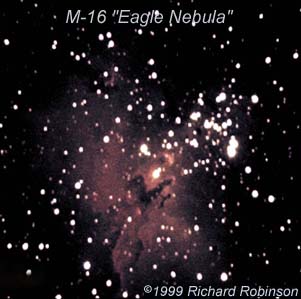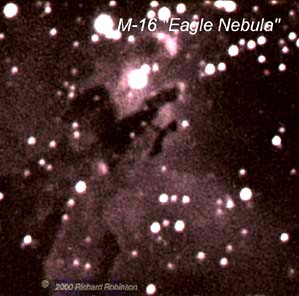|
|
|
 |
Size: 6.0 arcmin Magnitude: 6.0 RA: 18h 18m 43s Dec: -13 d 48m 0s |
| M-16 is several degrees above M-8. The stars around M-16 are easy objects for amateur scopes and the nebula begins to appear even with short CCD exposures. However, seeing the nebula itself may be a challengs unless you have dark skies. Binoculars may show a fuzzy patch of light, at the location shown in the image below taken with the Nikon Camera. Be sure to look at the HST image. It shows terrific detail of the end eagles beak. | |
